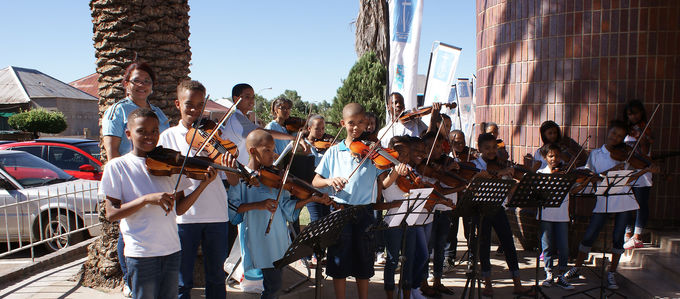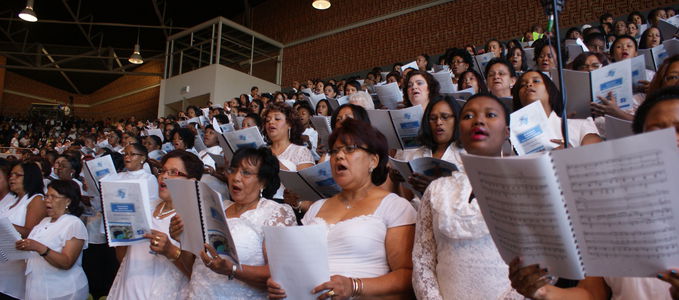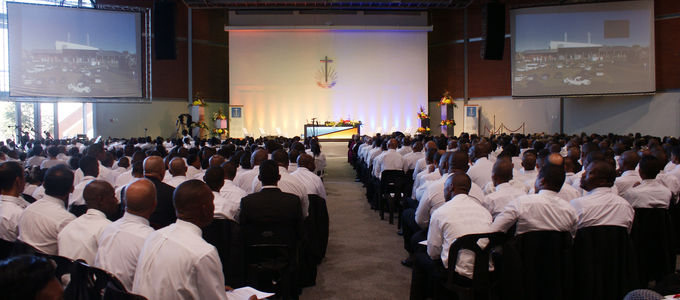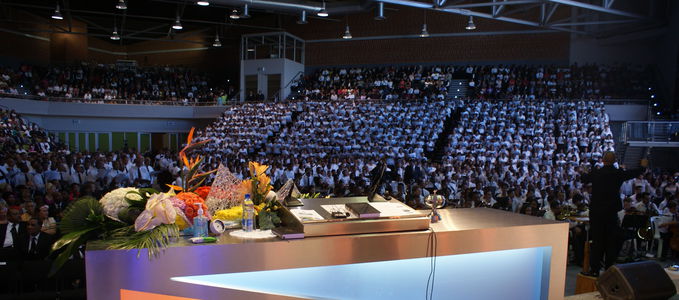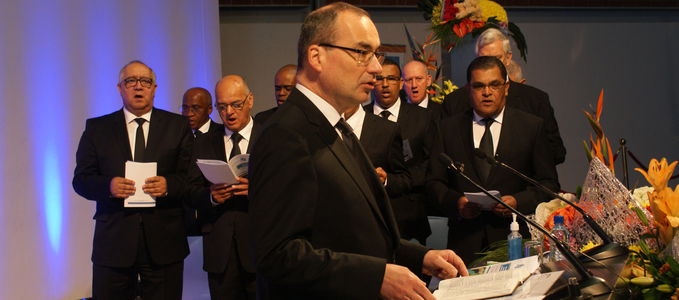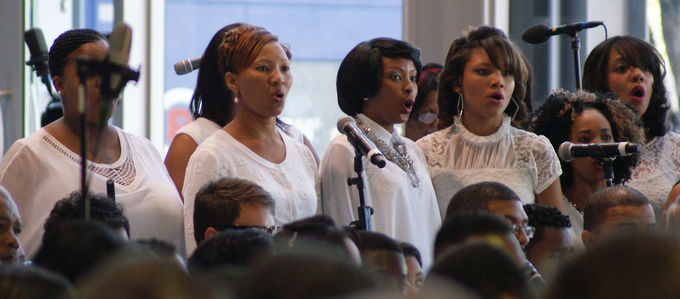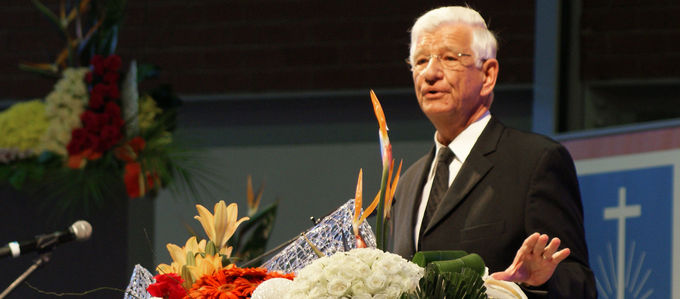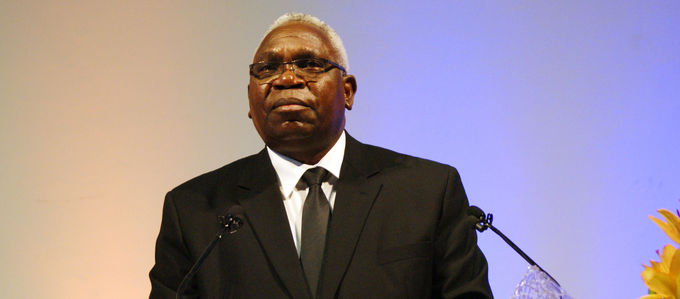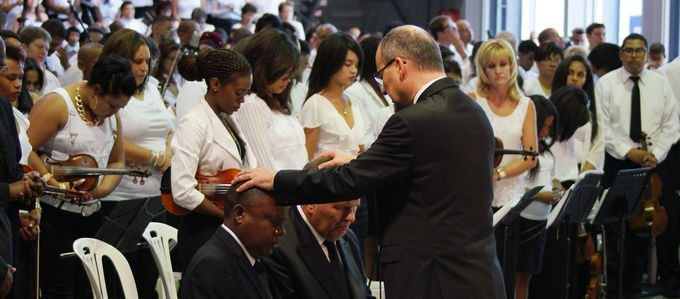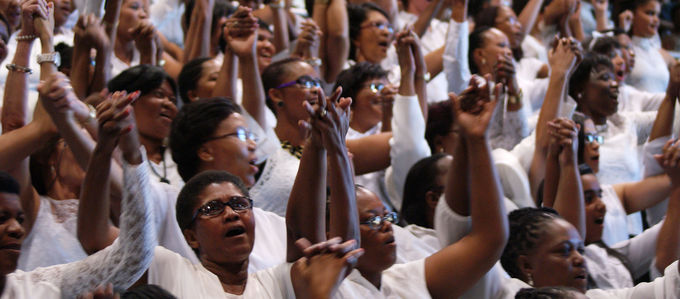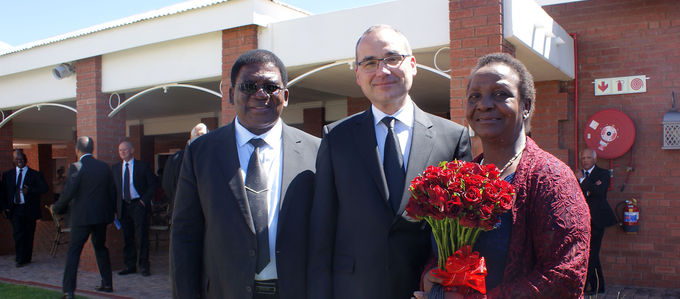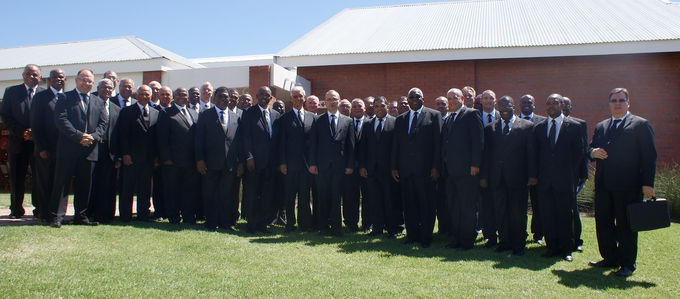
Making deals with God? Degrading the Church to the level of a service provider? Making oneself the measure of all things? Who would do such things? They can happen more quickly than we think! Some eye-openers from a divine service with the Chief Apostle.
The focus of the divine service on 20 March 2016 in Kimberley, South Africa was on the cleansing of the temple. Over 4,400 participants assembled in the Mittah Seperepere Convention Centre for the event, and roughly another 1,450 other receiving stations were connected by video transmission. The sermon was based on the following scriptural passage: “Then He taught, saying to them, ‘Is it not written, “My house shall be called a house of prayer for all nations”? But you have made it a “den of thieves”’” (Mark 11: 17).
The Chief Apostle explained that the term ‘temple’ has three meanings, namely: the place of our encounter with God, the church and congregation as a fellowship of believers, as well as each individual believer. “Now it is important to know how Jesus would like this temple to be,” he went on to add.
Out of love, not fear
“One does not make deals with God,” he said in reference to the fact that Jesus drove the merchants and money changers from the temple. Making deals is characterized by the position, “I will give you something if you give me something,” but “our relationship to God is based on love, not some other interest.”
The Chief Apostle defined the “den of thieves” in the Bible text as the hiding place of evildoers who are trying to escape their punishment. “When we go to the divine service, then let us do so because we want to grow into the nature of Jesus,” he emphasized, “not out of tradition or because we think, ‘God will punish me if I do not go to the service.’”
A shortcut through life?
The location of the temple in Jerusalem led many people to use the complex as a shortcut when transporting heavy loads. There is a similar effect still today: “If you look at the church or the congregation primarily as a social institution, you will expect support and help in life, for everyday life, such that life becomes easier for you.”
“That is not our understanding, however,” explained the Church leader: “We are aware that we have a mission to fulfil in the church, in the congregation. Every child of God is called upon to serve God by praising and glorifying Him, by proclaiming His works, and by exalting His grace and love.”
A house of prayer…
The Bible text calls upon each and every believer and every congregation to be a “house of prayer”. These prayers are to be characterized by:
- humbleness: “Let us come to our heavenly Father as children, in the childlike attitude that ‘My Father can do anything!’”
- trust: “Let us simply tell our heavenly Father everything: our weaknesses, our disappointments, our annoyances, our sins, our cares, our fears, and our joys—simply everything!”
- faith: “This gives weight to our prayers.”
- persistence: “Let us have patience and not give up, and let us never stop praying. This will lead to success.”
…for all nations
This house of prayer is intended for all nations, said Chief Apostle Schneider. Redemption is offered to all human beings, and this also means that “my neighbour does not need to become like me in order for God to love him as He loves me.”
“This is part of the basic knowledge of God’s people,” he emphasized: “We are all different and we all come from different places, we all come from different cultural circles and have different traditions—and yet we comprise a house of prayer for all nations. This house of prayer is for both the weak and the strong, the poor and the rich, no matter what differences there may be.”
“Jesus wants us to become one in prayer,” he said in summary: “We will reach this oneness when we all concentrate on the essential, namely our redemption—and the redemption of our neighbour.”







